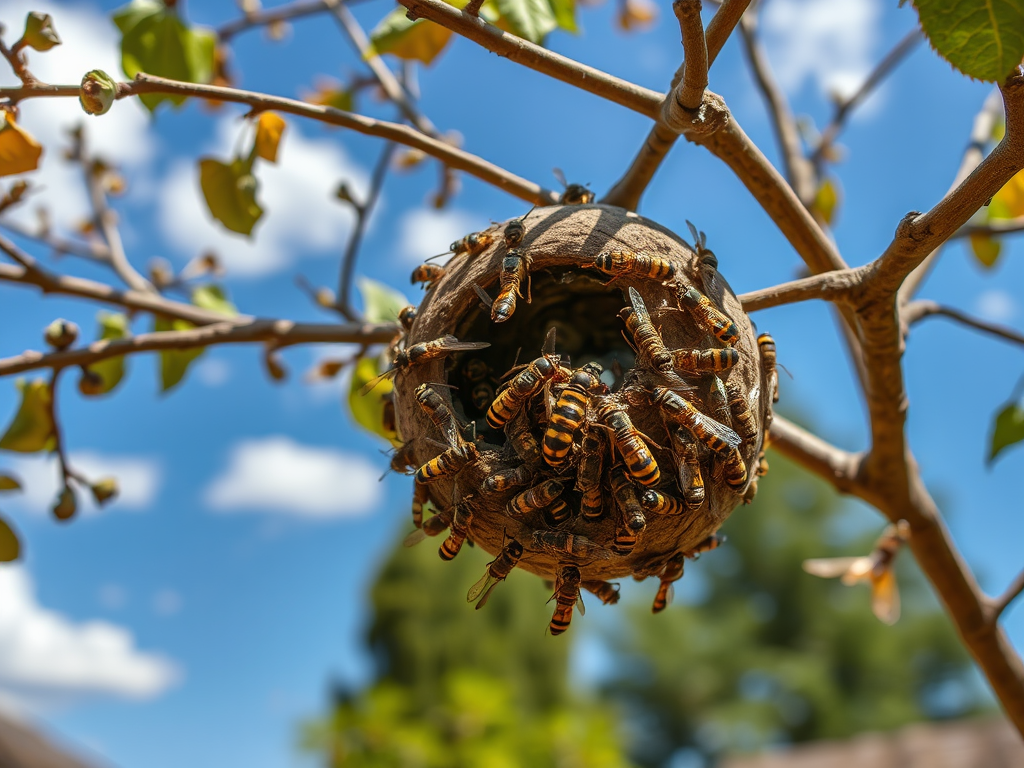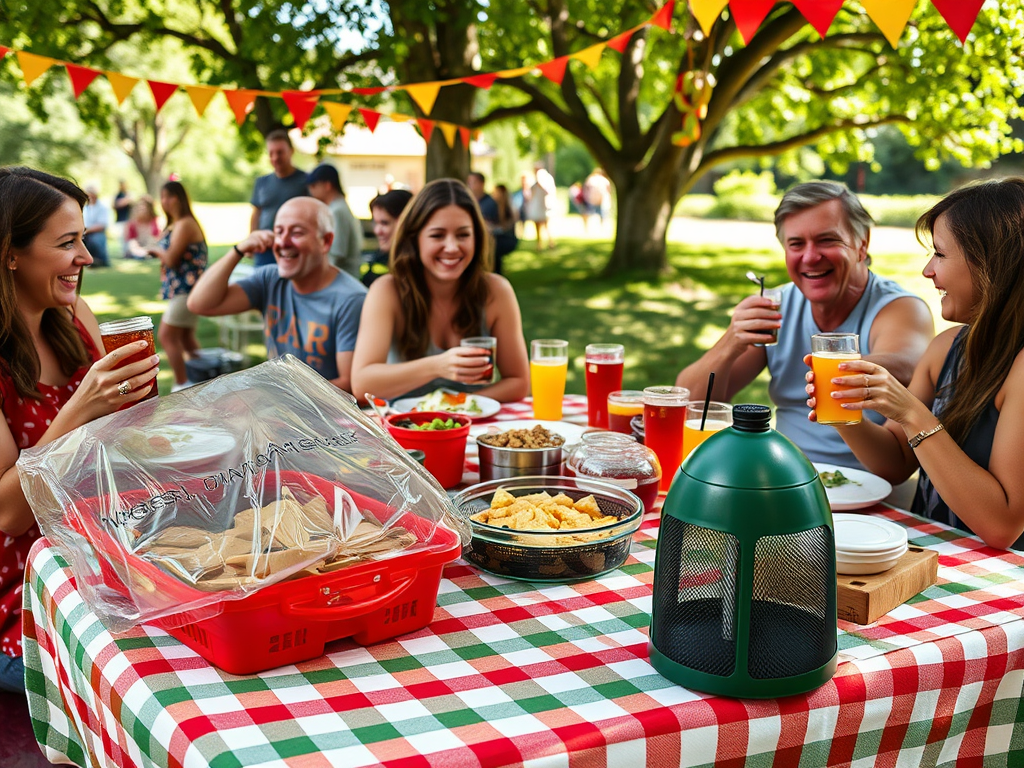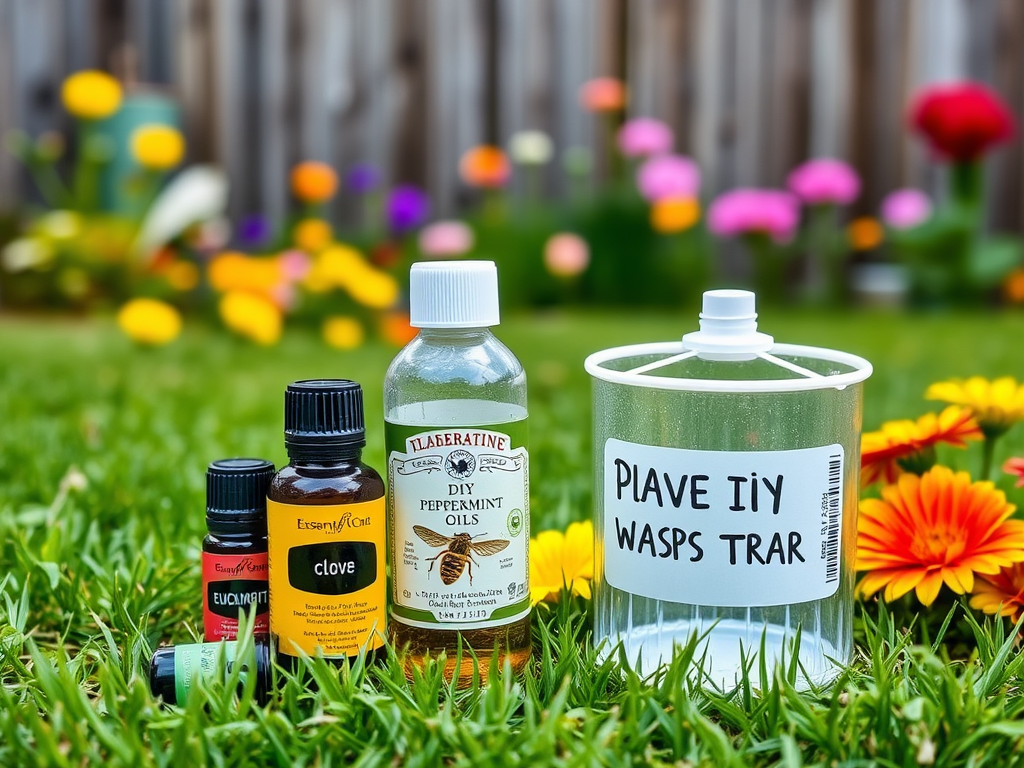As the warm weather approaches and outdoor activities begin, the presence of wasps can quickly turn a pleasant gathering into a stressful experience. Unlike bees, wasps can be particularly aggressive and are often drawn to food and sugary drinks. To manage this unwanted company, many homeowners are seeking natural methods that are both effective and safe for the environment. In this guide, we’ll delve into practical techniques that not only repel wasps, but also discourage them from nesting in your backyard or near your home. With these strategies, you can reclaim your outdoor spaces without resorting to harsh chemicals.
Wasps serve important ecological roles, such as pollination and pest control; however, their aggressive behavior poses a real threat when they invade our living spaces. This article will provide insights into understanding wasp behavior and effective natural methods to keep them at bay. Prepare to explore essential oils, DIY traps, and preventative measures that will help you turn your outdoor space back into a sanctuary.
Understanding the Wasp Problem

To effectively handle a wasp problem, it’s important to first understand their behavior and nesting habits. Differentiating between wasps and other insects is essential, as wasps tend to be more territorial and aggressive as summer progresses. Most commonly, wasps build their nests in sheltered areas, such as trees, eaves, and wall voids. Recognizing their nests early can lead to more successful outcomes in removal.
Signs of Wasp Infestation

Before taking any measures to eliminate wasps, you need to recognize the signs of an infestation. Common indicators include:
- Frequent sightings of wasps around your home, especially near food or trash.
- Finding nests tucked away in sheltered spots, such as attics, trees, or fences.
- Increased wasp activity during peak outdoor hours, particularly late afternoon.
Natural Techniques to Repel Wasps
Several effective natural techniques can ward off wasps without resorting to harmful chemicals. By utilizing materials readily available in your home, you can create an unfriendly environment for these pests. One method involves the use of essential oils, which have strong scents that deter wasps.
Utilizing Essential Oils
Essential oils are not just fragrant; they are practical in keeping wasps at bay. Here are a couple of highly effective oils:
- Peppermint Oil: This oil not only smells wonderful to humans but is a powerful deterrent for wasps. Mixing a few drops with water in a spray bottle makes for an excellent repellent.
- Clove Oil: Another effective repellent that, when diluted, can be sprayed around known nesting areas.
| Essential Oil | Effectiveness against Wasps |
|---|---|
| Peppermint Oil | Highly Effective |
| Clove Oil | Effective |
| Eucalyptus Oil | Moderately Effective |
Making Your Own Wasp Trap
Another hands-on approach involves creating your own wasp traps. DIY traps are simple to make and can significantly reduce the wasp population around your home. Here’s what you’ll need and a quick guide on how to make your own:
- Materials Needed: A clean plastic bottle, sugar water, and vinegar.
- Instructions:
- Cut the plastic bottle in half. This creates two separate components.
- Fill the bottom half with a mixture of sugar water and vinegar to attract the wasps.
- Invert the top half of the bottle over the bottom half to create a funnel, allowing wasps to enter but not escape.
Preventative Measures
Implementing preventative measures can help mitigate the risk of a wasp infestation before it begins. Keeping your outdoor area less attractive to these pests is key. Here are a few strategies:
Keeping Food Covered
Wasps are particularly drawn to food sources, especially those that are sweet or delicious. During outdoor celebrations or barbecues, ensure all food is properly covered. This simple step can significantly decrease the likelihood of attracting wasps. Consider using:
- Food covers or domes specifically designed for outdoor dining.
- Zip-lock bags or containers to seal away leftovers.
- Garbage bins with tight-fitting lids, especially those filled with food waste.
Sealing Entry Points
An essential part of wasp prevention is addressing potential nesting spots. Inspect your home for cracks and crevices that might serve as entry points. Do not overlook:
- Gaps around windows and doors.
- Holes in walls, especially older structures or sheds.
- Spaces near utility lines or pipes.
Conclusion
Effectively handling wasps naturally involves a blend of understanding their habits, employing repellents, and taking preventative actions. By becoming proactive, homeowners can discourage wasps from invading their outdoor social gatherings. With the natural techniques and DIY ideas provided, you can reclaim your outdoor space while being gentle on the environment. Remember, the journey to a wasp-free zone involves routine vigilance and a little creativity.
Frequently Asked Questions
- What attracts wasps to my home? Wasps are typically attracted to sugary foods, proteins, and open garbage. Sealing away food sources can reduce their attraction.
- Are natural wasp solutions effective? Yes, methods such as essential oils and DIY traps are effective in controlling wasp populations without chemical pesticides.
- Can I remove a wasp nest myself? Removing larger nests can be dangerous; it’s advisable to hire professionals for such tasks.
- How can I prevent wasps from coming back? Regular inspections, food management, and sealing potential entryways are key to preventing future infestations.
- Is it safe to use vinegar as a wasp repellent? Yes, vinegar can be effectively mixed with water and sprayed to naturally repel wasps.
